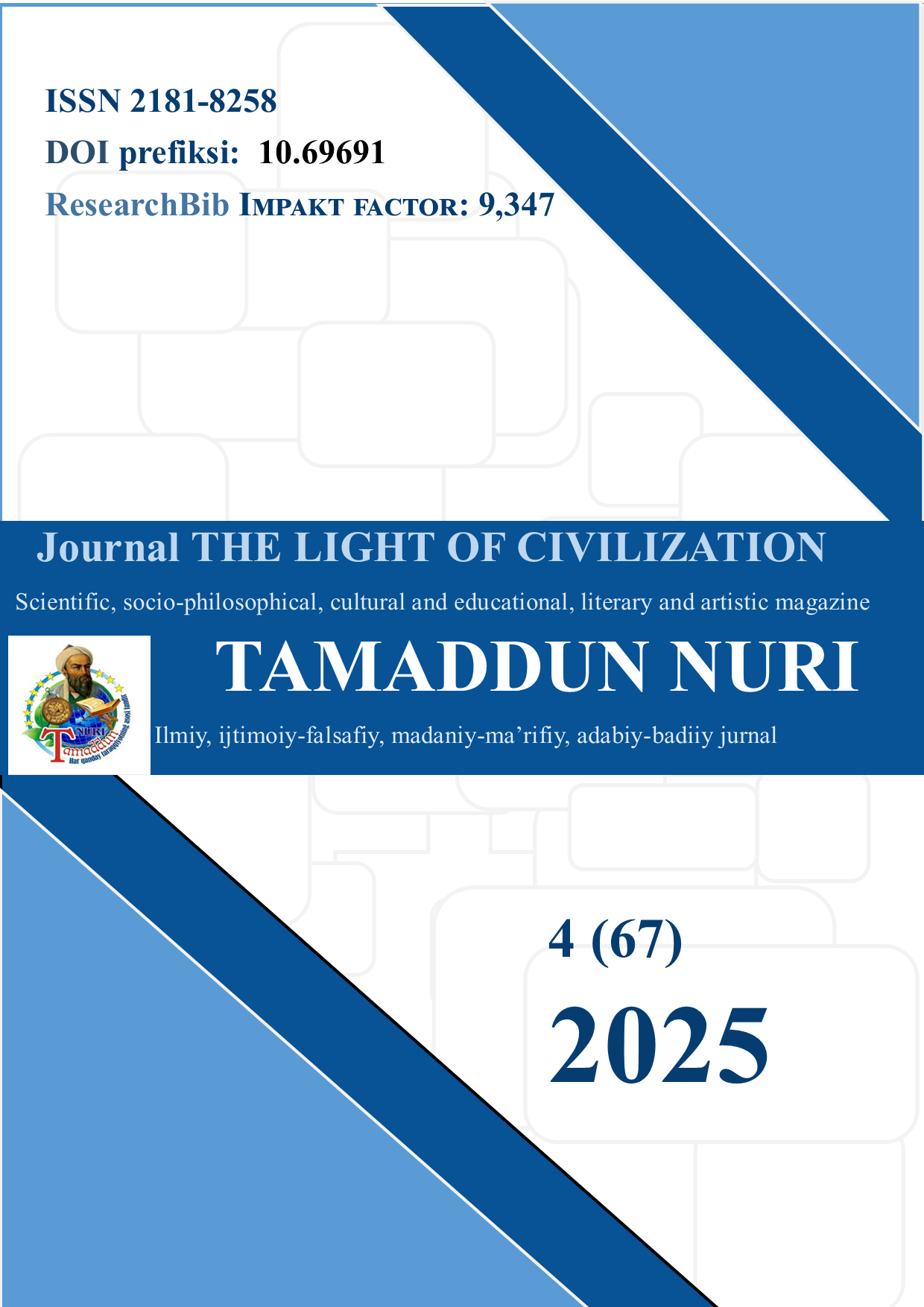ЗНАЧЕНИЕ РЕФОРМ, ОСУЩЕСТВЛЕННЫХ В РЕЛИГИОЗНО-ПРОСВЕТИТЕЛЬСКОЙ СФЕРЕ В ПЕРИОД НЕЗАВИСИМОСТИ
DOI:
https://doi.org/10.69691/8rvnw708Ключевые слова:
Независимость, религиозно-просветительские реформы, радикализм, экстремизм, религиозное образование, духовное воспитание, терпимость, стабильность, молодёжь, национальная безопасность.Аннотация
В данной статье освещаются широкомасштабные реформы, осуществлённые в религиозно-просветительской сфере после обретения Узбекистаном независимости, а также их роль в противодействии экстремизму и радикальным идеям в обществе. Анализируются меры, принятые в рамках реформ, по обеспечению религиозной свободы, развитию религиозных учебных заведений, укреплению принципов религиозной терпимости и воспитанию молодёжи на основе просвещения.
Библиографические ссылки
Babadjanov B., Kamilov M. Muhammad Hindustani (1892-1989) and the beginning of the “Greatest Schism” among the Muslems of Uzbekistan. – Pp.195-220.
Boboxonov Sh. So‘nmas Ziyo. – Toshkent. 1998.
Ibrohim Gofur. Mulla Hindustoniyning boshidan kechirganlari. O‘zbekiston adabiyoti va san’ati, №№ 33 (14 avgust).
Jalolov A., O‘zganboyev X. O‘zbek ma’rifatparvarlik adabiyotining taraqqiyotida vaqtli matbuotning o‘rni. – Toshkent. 1993.
Maqsudov Y. Ulug‘lar davrasida. - Sharq yulduzi, № 4, - Toshkent. 1990. – B. 188-196.
Shayx Muhammad Sodiq Muhammad Yusuf. Ixtiloflar haqida. – Toshkent. 2003.
Загрузки
Опубликован
Выпуск
Раздел
Лицензия
Copyright (c) 2025 Журнал Тамаддун Нури

Это произведение доступно по лицензии Creative Commons «Attribution-NoDerivatives» («Атрибуция — Без производных произведений») 4.0 Всемирная.



